Daily Life
Audio of Irving Berlin’s 1918 song, They were all out of step but Jim
Despite what movies and television show us, daily life for a soldier in wartime is rather tame. There are endless drills and routines specifically designed to keep the soldiers busy until the fighting picks up. The music in the Spencer Collection reflects that with a wide range of topics that cover everything from waking up early in the morning to not being able to march in step. Songs such as these can be viewed from a number of different perspectives. Did these oftentimes humorous songs reflect the idealism of a generation that hadn’t fought their brothers in civil war or was this merely a distraction to forget the realities of combat?
Music was a popular way to relieve stress and have fun in World War One. Trench Trot is a humorous song that employs army commands that a soldier should have felt comfortable performing on the dance floor as well as the battlefield. This song surely must have coaxed many shy men into dancing!
The Cootie Tickle was another popular song that originated the year after World War One ended. Much like Trench Trot, this song uses fun lyrics and easy dance steps to encourage soldiers and civilians alike to dance freely. The word “cootie” doe not refer to the mysterious childhood disease that boys and girls claim each other has, but were tiny bugs that flourished in the filthy conditions in the trenches. Therefore a “cootie tickle” would have been a soldier who was constantly flailing his limbs and scratching to relieve himself from the pests.
This song, written by Harry Carroll in 1918, pokes fun at the soldiers who are dancing safely at home in America and aren’t overseas fighting. Typical to this period, the song relies heavily on racial stereotypes for an attempted humorous effect.
As discussed in the post about gender relations, many soldiers spent their time thinking about family and loved ones. This song discusses an event that thousands of soldiers would perform in World War One: writing a letter to their mothers. The cult of masculinity that was present during the early 20th century has no objections to showing mothers and other females affection. In many ways it was encouraged, and a study of propaganda posters from WWI show that the protection of women play a central theme in these advertisements.
Soldiers spent much of their time longing for their homeland. After weeks and months of fighting on foreign soil, the pull of their home must have been strong. This song, written by Earl K. Smith in 1917, echoes the sentiments of a southern soldier who misses his home in Dixie.
Another comedic song composed by Irving Berlin, They Were All Out of Step But Jim discusses a lighter aspect of warfare: marches. Proving that mothers from 1918 loved and supported their children just as fervently as mothers do now, the song is told from the point of view of a mother who witnesses her son marching in a parade and claimed that every soldier but her son was out of step. The irony of this is, of course, that her son was the one out of step.
While soldiers feared combat and death, Irving Berlin captures a more constant fear in his song Oh! How I Hate to Get in the Morning. Despised by soldiers and civilians alike, waking up in the morning is an aspect of daily life in wartime that is rarely discussed. In a fittingly brutal line, the protagonist of the song claims that, “Some day I’m going to murder the bugler” and that he’s going to spend the rest of his day in bed.
Oh! How I Hate to Get in the Morning, from the 1943 movie, This is the Army
Return to the homepage here.
- “The Cootie Problem,” Old Magazine Articles, http://www.oldmagazinearticles.com/what_was_a_cootie_in_WW1. ↩

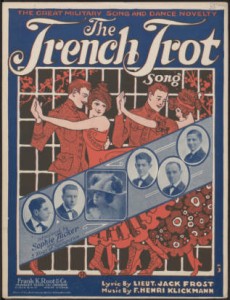
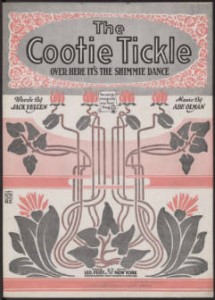
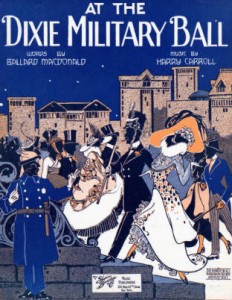
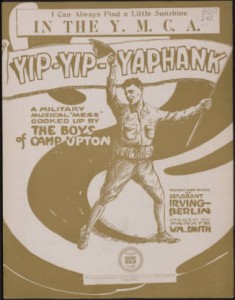

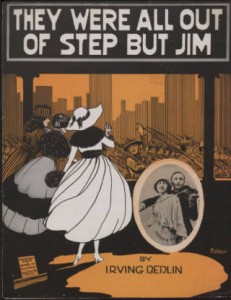
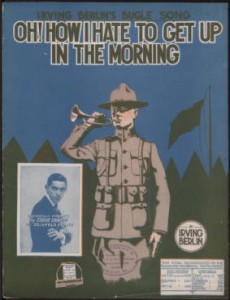
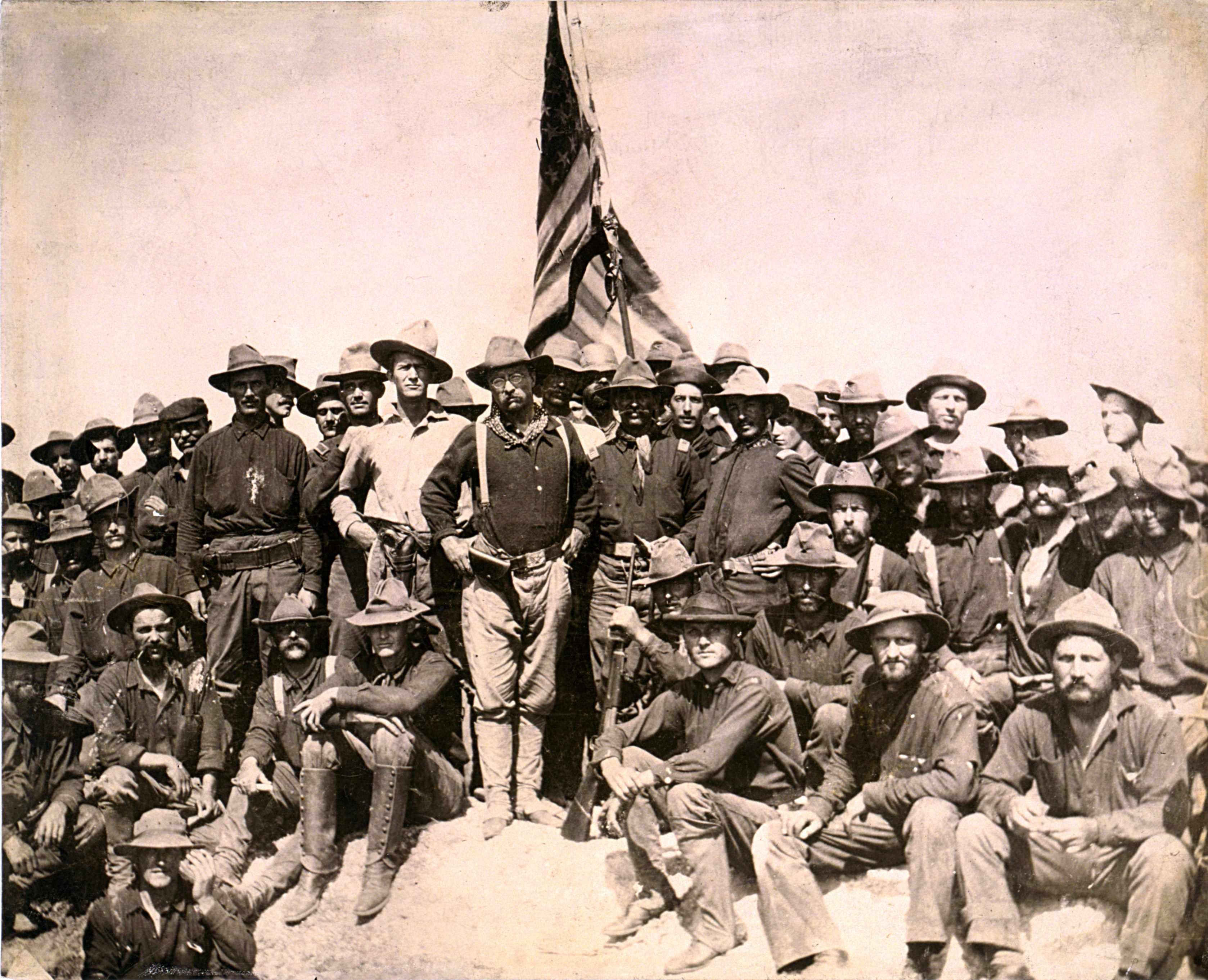 Teddy Roosevelt and his Rough Riders, 1898
Teddy Roosevelt and his Rough Riders, 1898